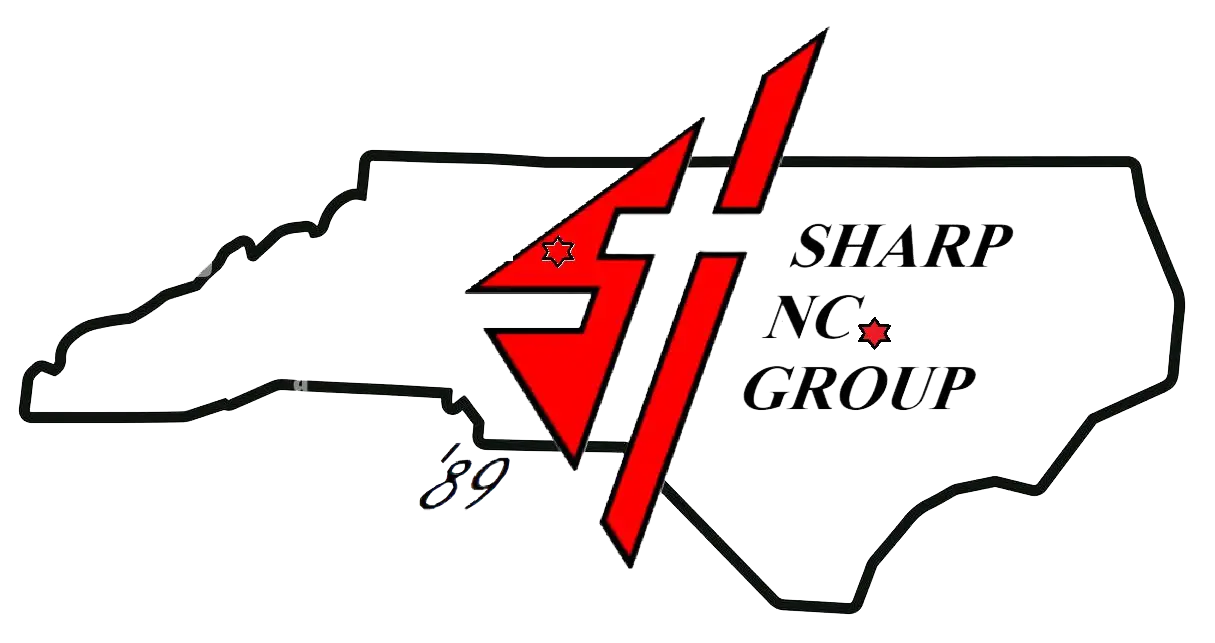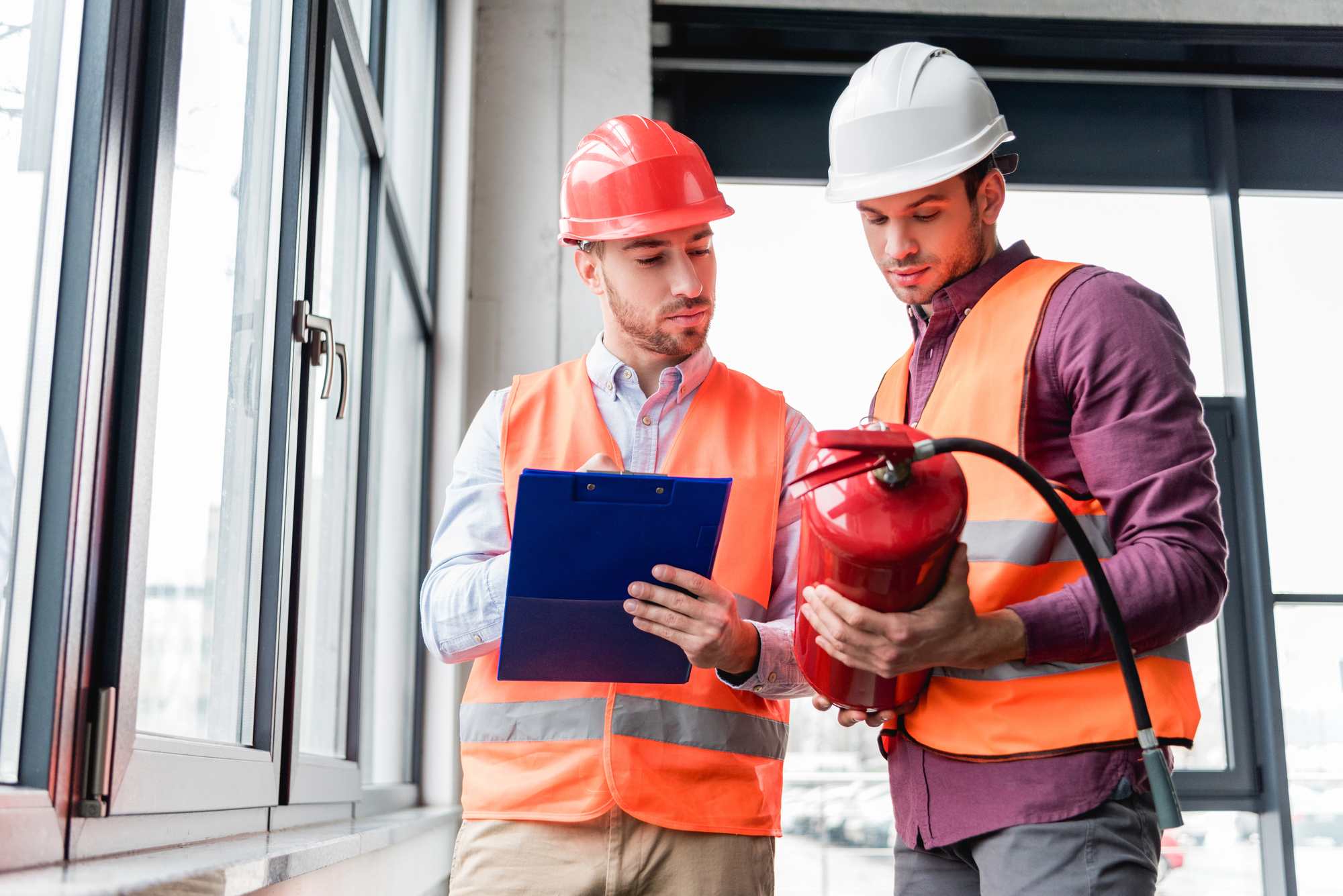Fire safety isn’t just a box to check during a construction project. It’s a critical component of protecting lives, property, and investments. Building codes lay out specific requirements for fire-resistance ratings to ensure commercial and industrial projects are structurally sound and capable of withstanding fire exposure for prescribed periods.
At Sharp NC Group, we specialize in providing expert fireproofing solutions that meet or exceed these standards. Whether you’re navigating complex requirements, preparing for inspections, or seeking quality fireproofing done right, we’re here to help.
Need help meeting fire safety codes? Contact us at 336-760-0703 for expert guidance and service.
What Are Fire Ratings?
Fire ratings measure how long a building material, structural assembly, or system can endure exposure to fire while maintaining its integrity. These ratings are usually expressed in terms of time, such as 1-hour or 2-hour ratings, following stringent standardized testing methods.
For commercial buildings, fire ratings apply to critical components like walls, floors, ceilings, doors, and structural steel. Each component’s fire-resistance rating plays a role in ensuring that a building provides time for occupants to evacuate and minimizes structural damage during a fire event.
Understanding fire ratings and how to achieve them is essential for code compliance, permitting, and long-term safety.
Key Building Codes That Define Fire Ratings
Keeping up with fireproofing requirements means knowing the building codes that dictate fire-resistance ratings in commercial buildings. These include:
International Building Code (IBC) Fire Rating Requirements
The IBC outlines the minimum fire resistance for various building types and components based on a structure’s purpose and size. It serves as a baseline standard for many local building codes.
National Fire Protection Association (NFPA) Guidelines
The NFPA provides additional fireproofing standards, including specifics on sprinklers, firestops, and materials.
Local and State Codes in North Carolina
While North Carolina aligns closely with the IBC and NFPA standards, there are additional fireproofing requirements unique to the region. Staying up to date on local codes is critical to avoid penalties and delays.
UL-Rated Assemblies
Building products and assemblies tested and certified by UL (Underwriters Laboratories) offer the assurance of meeting globally recognized testing standards. Specifying UL-rated systems further supports compliance.
Failing to meet these codes can lead to fines, liability exposure, and even project shutdowns. That’s why working with knowledgeable fireproofing experts is non-negotiable.
Types of Fireproofing to Meet Code Compliance
There’s no one-size-fits-all solution for fireproofing commercial buildings. Sharp NC Group employs specialized fireproofing techniques tailored to different needs, ensuring compliance every time.
Cementitious Fireproofing
Cost-effective and highly efficient, this spray-applied material is ideal for large-scale steel structures where hidden fireproofing works best. It provides insulation and fire resistance while meeting stringent fire-rating requirements.
Intumescent Coatings
These coatings are commonly used for exposed steel and architectural finishes. When exposed to heat, they expand into a protective charcoal layer, offering excellent fire resistance without compromising aesthetics.
Our team ensures the right fireproofing method is applied to each project, considering design specifications, building codes, and durability requirements.
Why Fire Ratings Matter for Builders and Property Owners
For builders and property owners, fire ratings are more than just regulatory hurdles. They offer tangible advantages:
- Protect Lives and Property
Fire-rated materials help contain fires, providing occupants with time to evacuate safely and reducing property damage.
- Reduce Liability Risks
Code-compliant fireproofing limits your liability as a property owner or developer, ensuring that you meet legal obligations.
- Lower Insurance Premiums
Many insurers reward compliance with reduced premiums, saving property owners money over time.
- Avoid Inspection Delays
Meeting fire-resistance requirements is mandatory for permitting and successful building inspections. Ensuring compliance upfront prevents costly rework and holds on construction.
Why Choose Sharp NC Group for Your Fireproofing Needs
At Sharp NC Group, we know the complexities of fireproofing commercial and industrial buildings better than anyone. Our team offers the experience, precision, and local expertise you need to get the job done right.
- Vast Fireproofing Experience
We’ve successfully completed fireproofing projects across the Carolinas for general contractors, developers, and property owners alike.
- Skilled in Multiple Techniques
From cementitious fireproofing to intumescent coatings, we’re equipped to meet the fireproofing requirements of any commercial building.
- Code Compliance Expertise
We’re well-versed in IBC, NFPA, and North Carolina’s local fireproofing standards, ensuring flawless code compliance for your project.
- Proven Track Record
By staying on schedule and delivering quality work, we’ve built strong partnerships with developers and inspectors across the region.
When it comes to fire safety, there’s no substitute for a trusted partner. We’re passionate about helping our clients meet fire-safety standards while protecting their buildings and communities.
Secure Your Project with Expert Fireproofing
Understanding fire ratings for commercial buildings isn’t just about staying compliant. It’s about protecting lives, property, and your professional reputation. At Sharp NC Group, we’re committed to making fireproofing straightforward, worry-free, and expertly executed.
Call us at 336-760-0703 today to learn how we can help you meet fireproofing requirements for your next project.

